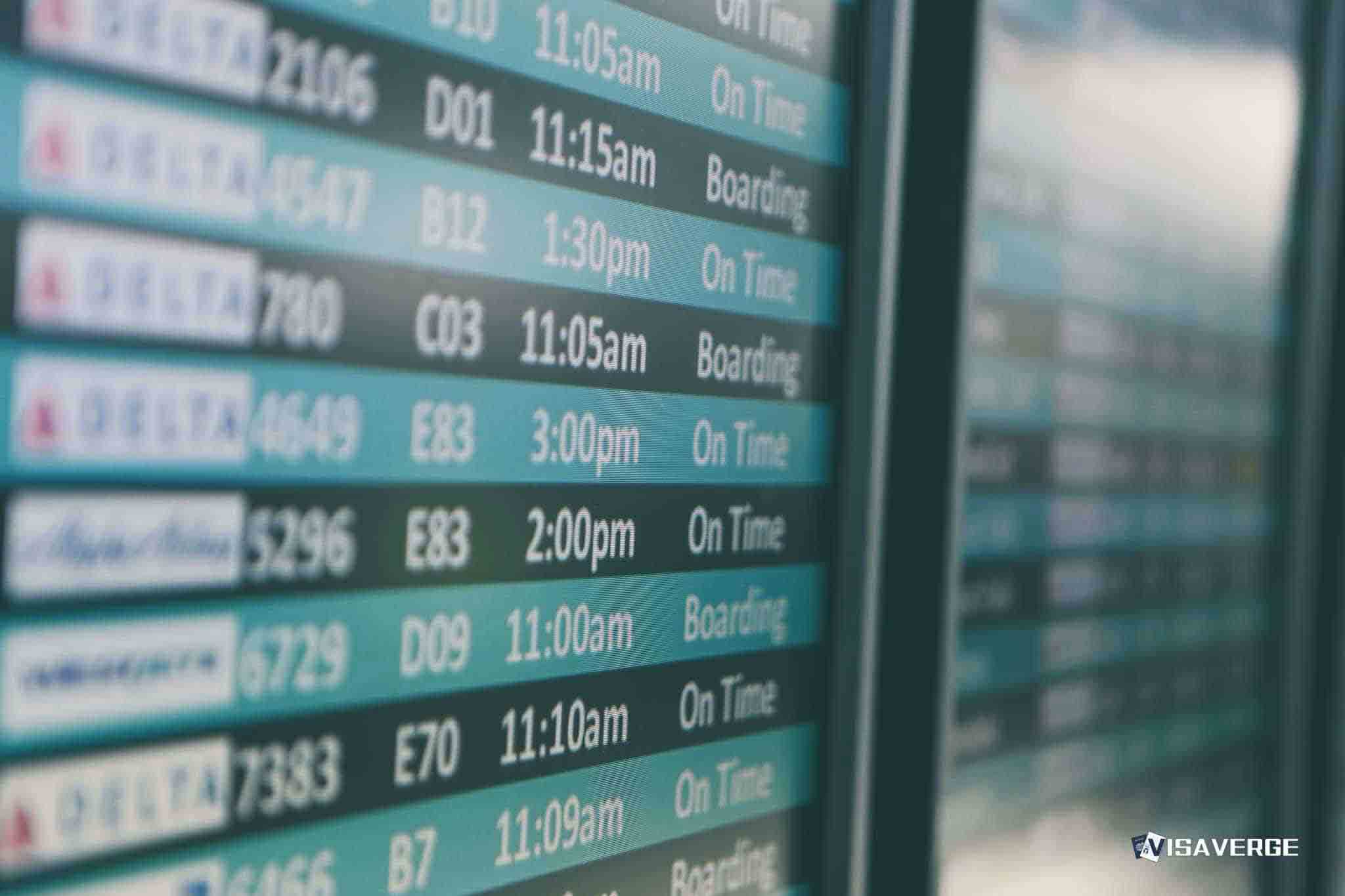Key Takeaways
01
The Fair Labor Standards Act ensures minimum wages, overtime pay, and child labor rules across U.S. workplaces, including daycares.
02
Most daycare workers are non-exempt under FLSA, ensuring compliance with wage and overtime laws to prevent penalties.
03
The U.S. Department of Labor enforces FLSA, with potential fines for violations, emphasizing the importance of compliance in daycare settings.
FLSA: Crucial Rules for Daycare Workers
The Fair Labor Standards Act (FLSA) sets standards for wages and hours in the U.S., impacting daycare centers and preschools significantly. Key provisions include federal minimum wage, overtime pay, and protections for non-exempt employees.

Why it matters: Daycare centers must navigate FLSA rules to ensure fair compensation, affecting staffing and service quality in early childhood education.
The big picture:
– Established in 1938, the FLSA ensures fair labor practices with minimum wage and overtime standards.
– It offers a baseline for wage regulations, though states can impose stricter standards.
State of play:
– Most daycare workers are non-exempt, meaning they must be paid at least the federal minimum wage and are eligible for overtime for hours over 40 per week.
– Compliance with these rules is critical to avoid penalties and ensure a fair working environment.
By the numbers:
– Federal minimum wage: $7.25/hour
– Overtime: Paid at 1.5 times the standard rate beyond 40 hours/week
What they’re saying:
– U.S. Department of Labor: Enforces FLSA through investigations and can impose penalties for non-compliance.
Case law: Courts have upheld FLSA standards, emphasizing rigorous adherence to worker rights, often siding with employees in overtime disputes.
Between the lines:
– The daycare workforce depends on proper classification as non-exempt to receive due rights and protections.
– Accurate record-keeping is crucial for compliance and avoiding legal issues.
Recent changes: Discussions on increasing the federal minimum wage could significantly benefit daycare workers, highlighting the evolving nature of labor laws.
Ongoing debates: There’s concern that the current wage does not reflect daycare workers’ economic contributions, with arguments for higher pay.
Yes, but: Some misconceptions persist, like the belief that small daycare centers are exempt from FLSA, which is largely untrue.
The bottom line: FLSA compliance is essential for daycare centers to ensure fair wages and work conditions, fostering a reliable workforce crucial for shaping the nation’s future.
Taking a Closer Look
The Fair Labor Standards Act (FLSA) is a United States law that sets important rules about pay and work hours for many workers. It covers minimum wages, overtime pay, and child labor. It’s crucial to understand these rules, especially for people working in daycare centers and preschools since they have unique challenges and opportunities.
Overview of FLSA Rules
The FLSA was created in 1938 to ensure fair pay for workers. It sets standards that protect the earning potential and health of employees across the country. The law’s main points include a federal minimum wage and guidelines for overtime and child labor. While states can have their own laws to offer greater protection, the federal standards provide a baseline for all workers in the U.S. 🇺🇸.
FLSA’s Importance in Daycare Centers
Daycare centers play a vital role in early childhood education, influencing young lives and aiding working parents. According to FLSA rules, most daycare workers qualify as non-exempt. This means they should receive the federal minimum wage and are eligible for overtime pay, which is typically one and a half times their usual rate for any hours worked beyond 40 in a week.
Understanding Key FLSA Terms
Several terms used within the FLSA often require clarification:
- Minimum Wage: This is the lowest amount a worker can be paid per hour as dictated by law. As of now, the federal minimum wage is $7.25 per hour, but some states have set higher rates.
-
Overtime Pay: Workers must be compensated for overtime if they work more than 40 hours per week. The standard rate is one and a half times the regular pay.
-
Non-Exempt: Most daycare center staff are non-exempt, which means they are covered by all FLSA protections.
-
Child Labor Laws: These rules safeguard young workers, limiting the number of hours they can work and ensuring they do not engage in hazardous jobs.
Scope and Applicability in Early Childhood Education
The FLSA applies to most workplaces, including daycare centers and preschools. This includes teachers, aides, cooks, and janitorial staff. It’s important for these institutions to comply with the FLSA, not only to avoid penalties but also to maintain a fair working environment. Failure to adhere to these standards can lead to fines and back pay for aggrieved employees.
Enforcement and Authority
The U.S. Department of Labor (DOL) enforces the FLSA. They conduct investigations and handle complaints. If a daycare or preschool is found violating the act, the DOL may require the facility to pay back wages, and penalties may be imposed. This enforcement is aimed at ensuring compliance and preserving workers’ rights.
Impact on Daycare Workers and Employers
The FLSA has a significant impact on daycare centers. For employees, it ensures they receive fair compensation and protects them from being forced to work excessively long hours without due pay. For employers, compliance with these rules means maintaining detailed records of hours worked and wages paid to avoid disputes or penalties.
Case Law and Precedents
Several court cases have highlighted the importance of FLSA compliance in daycare centers. For example, in cases where daycare workers filed claims for unpaid overtime, courts have generally emphasized the strict interpretation of the FLSA, reinforcing the need for accurate record-keeping and proper classification of employees.
Recent Changes and Amendments
The landscape of the FLSA is subject to change as new amendments and state laws can affect its application. Recently, there have been discussions on increasing the federal minimum wage to a level that reflects living costs, which would impact daycare workers positively if enacted. Keeping an eye on these developments is crucial for both employees and employers in early childhood education settings.
Ongoing Debates and Controversies
There are active debates about whether the current minimum wage is adequate, especially considering the vital role of daycare workers. Some argue for a higher wage reflective of their contribution to early childhood education and enabling productivity among working parents. Additionally, the classification of some workers as exempt vs. non-exempt remains a contentious issue, impacting their right to overtime pay.
Real-World Application of FLSA Rules
In practice, daycare centers must carefully track worker hours and ensure proper compensation. For instance, if a caregiver works 45 hours a week, the extra five hours should be paid at the overtime rate. This system not only ensures fairness but also aids in staff retention by promoting a respectful work culture.
Consequences of Non-Compliance
Ignoring FLSA rules can lead to significant repercussions. Daycare centers might face lawsuits, owe large sums in back wages, and pay hefty fines. Moreover, non-compliance can damage an organization’s reputation, making it difficult to attract and retain qualified staff.
Pending Legislation
There is legislative momentum towards revisiting and potentially revising the FLSA’s provisions to reflect contemporary economic realities better. Proposed changes, such as those aimed at revising overtime rules or raising the minimum wage, are critical for all stakeholders in early childhood education to monitor.
Common Misconceptions
Many believe that small daycare centers are exempt from FLSA rules. However, the FLSA covers most employees in the U.S., regardless of the size of the establishment. Another misconception is that salaried workers are automatically exempt from overtime; the nature of their duties and salary thresholds determines this status.
Resources for Further Information
For those seeking more information or needing assistance related to FLSA rules, the U.S. Department of Labor (DOL) is a reliable source. Their website offers detailed guidance on compliance, FAQs, and resources for employers and workers alike.
Additionally, learning from firsthand experiences shared by other daycare centers can be invaluable. As reported by VisaVerge.com, many early childhood education settings have detailed insights on successfully implementing FLSA rules. You might also choose to explore the U.S. Department of Labor’s Wage and Hour Division for detailed insights into the FLSA and related compliance information.
In summary, understanding and adhering to the FLSA rules is crucial for everyone involved in early childhood education, from daycare providers to the workforce. These laws not only ensure fair compensation and work conditions but also encourage a stable and committed workforce that underpins the very foundation of nurturing young minds. By staying informed and compliant, daycare centers and preschools can continue providing valuable services while safeguarding the rights and well-being of those they employ.
The role of daycare centers is indispensable in early childhood education, and honoring both the spirit and letter of the FLSA is key to upholding standards that support those who care for the nation’s youngest citizens.
Learn Today
Minimum Wage: The lowest hourly pay workers must receive by law; the federal rate is currently set at $7.25.
Overtime Pay: Additional compensation for employees working more than 40 hours per week, usually at 1.5 times their regular rate.
Non-Exempt: Employees entitled to minimum wage and overtime pay protections under the Fair Labor Standards Act.
Child Labor Laws: Regulations protecting young workers, restricting work hours and prohibiting hazardous job environments.
Compliance: Adherence to rules and regulations, such as those in the Fair Labor Standards Act, to avoid legal penalties.
This Article in a Nutshell
The Fair Labor Standards Act (FLSA) ensures fair pay and conditions for workers, crucial for daycare staff. It mandates minimum wage and overtime, protecting employees who nurture young minds. Understanding and complying with FLSA obligations helps daycare centers maintain a supportive environment, benefiting both workers and the children they educate.
— By VisaVerge.com








